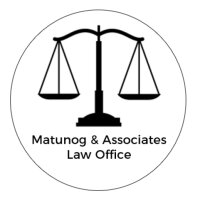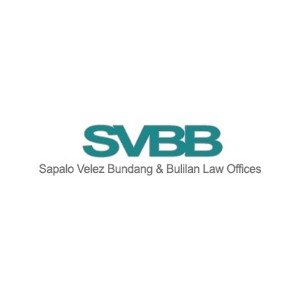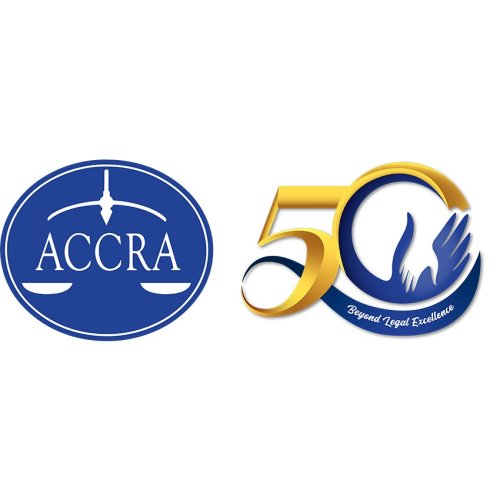Best Private Equity Lawyers in Davao City
Share your needs with us, get contacted by law firms.
Free. Takes 2 min.
List of the best lawyers in Davao City, Philippines
About Private Equity Law in Davao City, Philippines
Private equity involves investing private capital into companies that are not publicly traded, with the aim of acquiring, developing, or restructuring the businesses. In Davao City, one of the foremost economic hubs in Mindanao, the private equity sector is steadily growing due to increased investment interest from both local and international entities. Private equity transactions can include buyouts, venture capital, growth capital, and distressed investments. The legal landscape in Davao City seeks to balance investor interests, promote fair business practices, and safeguard the rights of all parties involved in private equity transactions.
Why You May Need a Lawyer
Engaging in private equity activities can be complex and presents several legal challenges. You may need a lawyer if you are:
- Seeking investment opportunities or aiming to raise capital for your business
- Structuring transactions involving buyouts, mergers, or acquisitions
- Negotiating terms and drafting investment agreements
- Ensuring compliance with local investment laws and regulations
- Addressing disputes between investors and investee companies
- Handling due diligence procedures for potential investments
- Facilitating foreign direct investment and understanding restrictions
- Winding down investments or selling shares in private companies
- Managing tax implications related to private equity deals
- Navigating regulatory approvals specific to Davao City or Mindanao
Local Laws Overview
Private equity transactions in Davao City are governed primarily by national laws, but local business practices and regulatory processes can influence deals. Key legal aspects include:
- Foreign Investments Act (FIA) - Determines limits on foreign ownership of local businesses.
- Corporation Code of the Philippines (as amended) - Guides company structure, shareholder rights, mergers, and acquisitions.
- Securities Regulation Code - Regulates securities offerings and sale of shares.
- Philippine Competition Act - Ensures M&A activities do not create monopolies or unfair competition.
- Anti-Money Laundering Act - Sets out compliance for financial transactions.
- Local Government Code - Specifies business permitting and regulation processes in Davao City.
- Tax Code - Governs tax obligations arising from investments.
- Regulations issued by the Board of Investments (BOI) and Philippine Economic Zone Authority (PEZA) may also apply, especially to investment incentives.
Lawyers in Davao City who specialize in private equity combine knowledge of these national laws with familiarity in local business culture, regulatory processes, and court practices to protect their clients' interests.
Frequently Asked Questions
What is private equity and how does it work in Davao City?
Private equity refers to investment in private (non-publicly listed) companies. In Davao City, it often involves venture capital, buyouts, and growth investments to help companies expand, restructure, or innovate. Investments are typically made by individuals, firms, or funds.
Can foreigners invest in private equity in Davao City?
Yes, foreigners can invest, but there are restrictions on foreign ownership in certain industries under the Foreign Investments Act. Some sectors may have a cap on foreign equity, and compliance with national and local regulations is necessary.
What legal due diligence is required for private equity transactions?
Due diligence involves thoroughly reviewing the target company's operations, finances, legal standing, compliance, contracts, and other pertinent documents. Legal counsel ensures that risks are identified and properly managed before closing the deal.
What are the common structures for private equity deals?
Deals can be structured as share acquisitions, asset purchases, joint ventures, or convertible debt instruments. The chosen structure depends on investment objectives, tax considerations, and regulatory requirements.
How are disputes resolved in private equity transactions?
Disputes may be resolved through negotiation, mediation, arbitration, or litigation in Philippine courts. Many investment agreements include provisions for alternative dispute resolution to expedite settlements.
What are the reporting and compliance requirements for private equity investors?
Investors must file regulatory disclosures with agencies like the Securities and Exchange Commission (SEC) and sometimes with the Philippine Competition Commission, depending on the size and nature of the investment.
Are there incentives for investing in Davao City?
Depending on the industry and business location, investors may qualify for incentives from the Board of Investments or the Philippine Economic Zone Authority, such as tax holidays or reduced import duties.
How long does a typical private equity transaction take?
Timelines vary based on deal size, due diligence complexity, and regulatory approvals. Transactions can take anywhere from a few months to over a year.
What taxes apply to private equity investments?
Taxes may include capital gains tax, value-added tax, documentary stamp tax, and income tax. Proper tax planning with an experienced lawyer or accountant is essential.
How can I find reliable legal counsel for private equity in Davao City?
Look for law firms or lawyers with expertise in corporate law, mergers and acquisitions, and investment law, especially those with experience in Davao City or Mindanao. Seek references or check with local business groups or the Integrated Bar of the Philippines - Davao Chapter.
Additional Resources
Here are some organizations and resources relevant to private equity in Davao City:
- Securities and Exchange Commission (SEC) Davao Extension Office
- Department of Trade and Industry (DTI) Davao Regional Office
- Board of Investments (BOI) Mindanao Field Office
- Philippine Economic Zone Authority (PEZA) Davao Liaison Office
- Integrated Bar of the Philippines (IBP) Davao Chapter
- Davao City Investment Promotion Center (DCIPC)
- Chamber of Commerce and Industry in Davao City
These agencies can provide guidance on local requirements, incentives, compliance, and dispute resolution processes.
Next Steps
If you are considering a private equity investment or transaction in Davao City, it is crucial to secure experienced legal counsel to guide you through the process. Start by:
- Identifying your investment goals and parameters
- Seeking referrals for reputable lawyers with expertise in private equity and local business laws
- Preparing all necessary documentation related to your business or investment
- Scheduling consultations to discuss your specific needs and concerns
- Ensuring continuous communication with your lawyer throughout the transaction
Proper legal guidance can help you navigate regulatory requirements, manage risks, and maximize the benefits of private equity investment in Davao City.
Lawzana helps you find the best lawyers and law firms in Davao City through a curated and pre-screened list of qualified legal professionals. Our platform offers rankings and detailed profiles of attorneys and law firms, allowing you to compare based on practice areas, including Private Equity, experience, and client feedback.
Each profile includes a description of the firm's areas of practice, client reviews, team members and partners, year of establishment, spoken languages, office locations, contact information, social media presence, and any published articles or resources. Most firms on our platform speak English and are experienced in both local and international legal matters.
Get a quote from top-rated law firms in Davao City, Philippines — quickly, securely, and without unnecessary hassle.
Disclaimer:
The information provided on this page is for general informational purposes only and does not constitute legal advice. While we strive to ensure the accuracy and relevance of the content, legal information may change over time, and interpretations of the law can vary. You should always consult with a qualified legal professional for advice specific to your situation.
We disclaim all liability for actions taken or not taken based on the content of this page. If you believe any information is incorrect or outdated, please contact us, and we will review and update it where appropriate.












